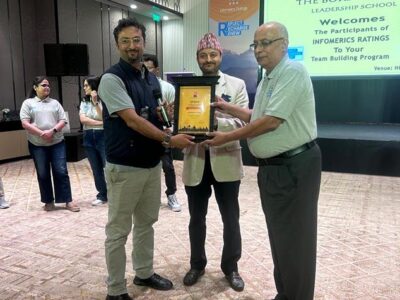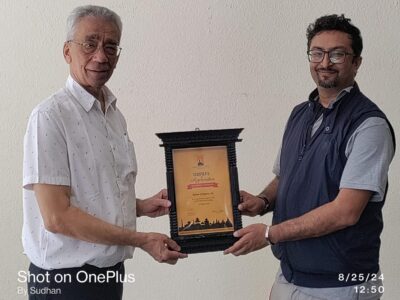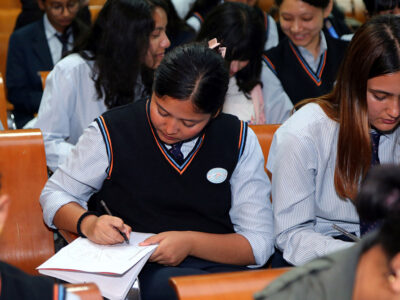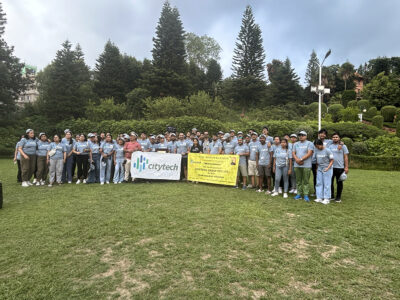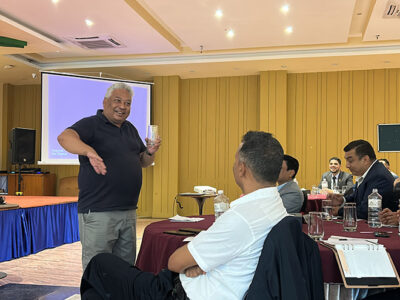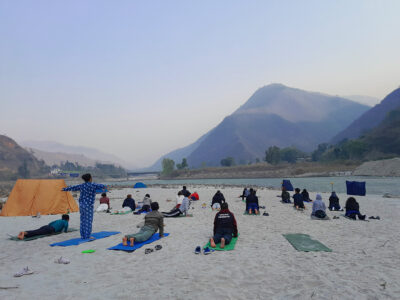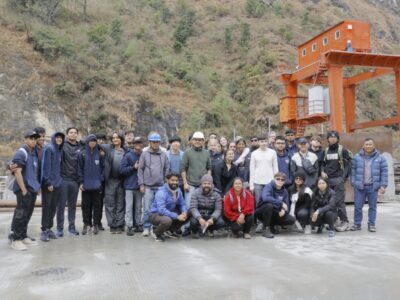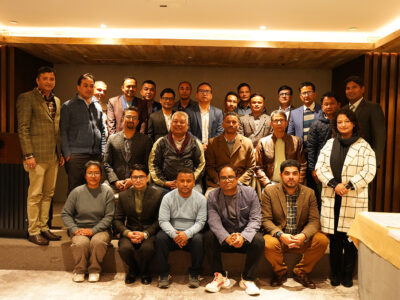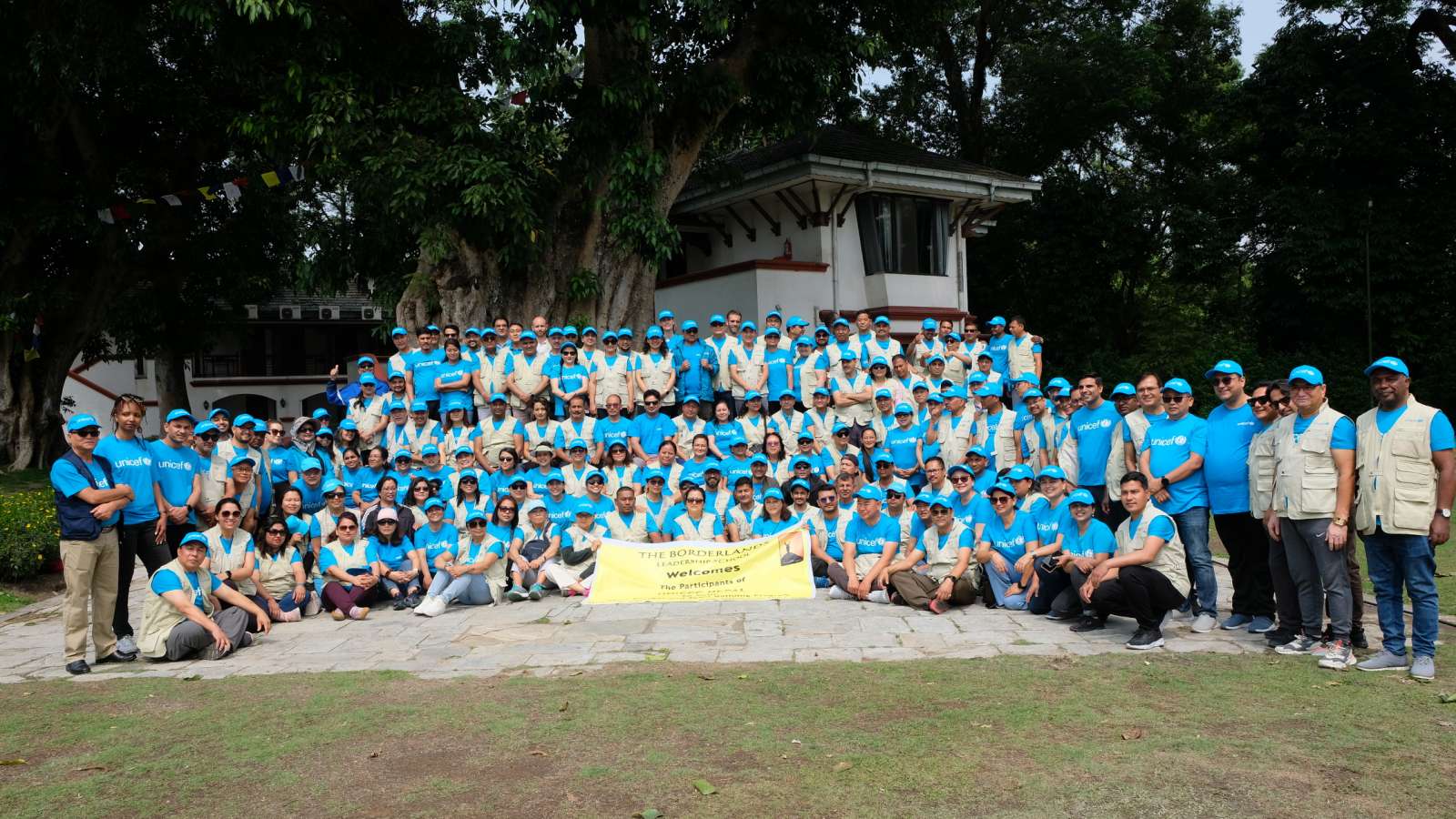
The Borderlands Leadership School conducted Team Building Program for the UNICEF Nepal staffs at Gokarna Forest Resort in Nepal from 15th – 17th May, 2023. The retreat aimed to boost team performance through improved collaboration, fostering innovation and creativity, enhancing communication and socialization within the team. The specific objectives were to increase staff self-efficacy and accountability, promote effective teamwork, strengthen diversity and inclusion, and support transformational change within the organization. In total 180 participants were actively participated in the outdoor as well as indoor activities.
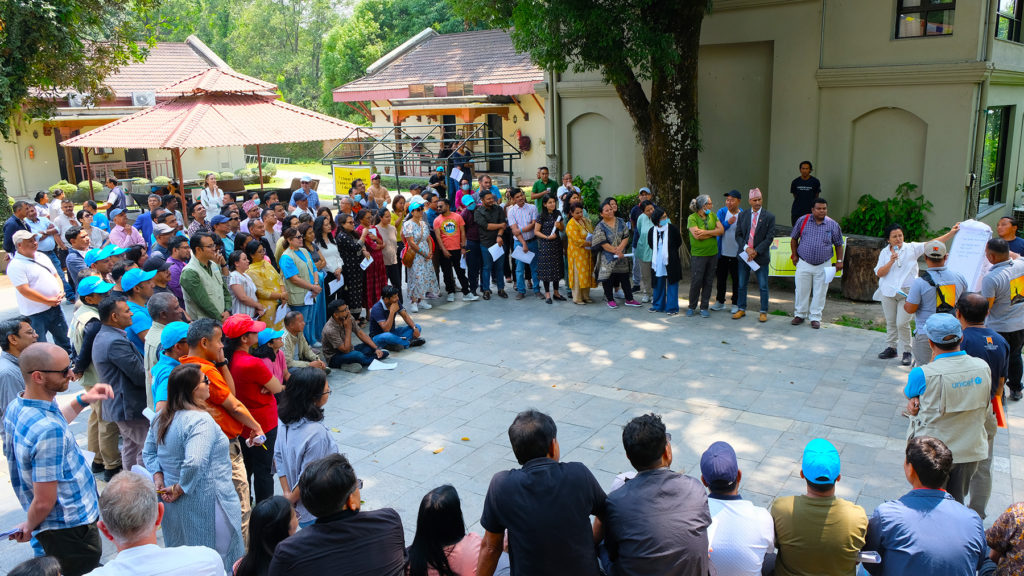
The first day of the program was focused on setting the tone, building trust, and enhancing teamwork among the participants. Ice-breaking activities were conducted to encourage interaction and familiarize the participants with each other. Outdoor activities such as the Hand squeeze, Inward Outward, “Comfort Zone “and” Value Session were conducted to demonstrate the values and benefits of teamwork. The welcome remarks were given by Ms. Elke Wisch, Country Representative for Nepal. She shared significant updates on the organization’s program as well as expressed her gratitude to the esteemed guests and highlighted the remarkable progress achieved through UNICEF’s initiatives. Then the safety briefing for the 3 days staying was briefed by Mr. Sagar Maharjan, Security Incharge of UNICEF Nepal. After the safety briefing, Mr. Anil Chitrakar, Senior Facilitator, highlights the program objectives, emphasizing the importance of inclusion and diversity, and providing examples to foster a change mindset. Then the DISC Assessment exercise was served to the participants to enhance the self awareness, promote understanding of different personality types and leverage individual strengths for effective teamwork with diversity and inclusion. This session was facilitated by Mr. Rupendra Maharjan and co-facilitated by Mr. Shudhan Lamsal, Mr. Pushparaj Simkhada, Mr. Madan Magar and Ms. Sanu Maiya Maharjan respectively in supervision of Mr. Anil Chitrakar. The indoor session was also conducted by Mr. Alain Sibenaler, an International Consultant. His presentation insights shed light on the pressing challenges faced by the UN and emphasized the importance of adaptive leadership approaches in tackling these issues.
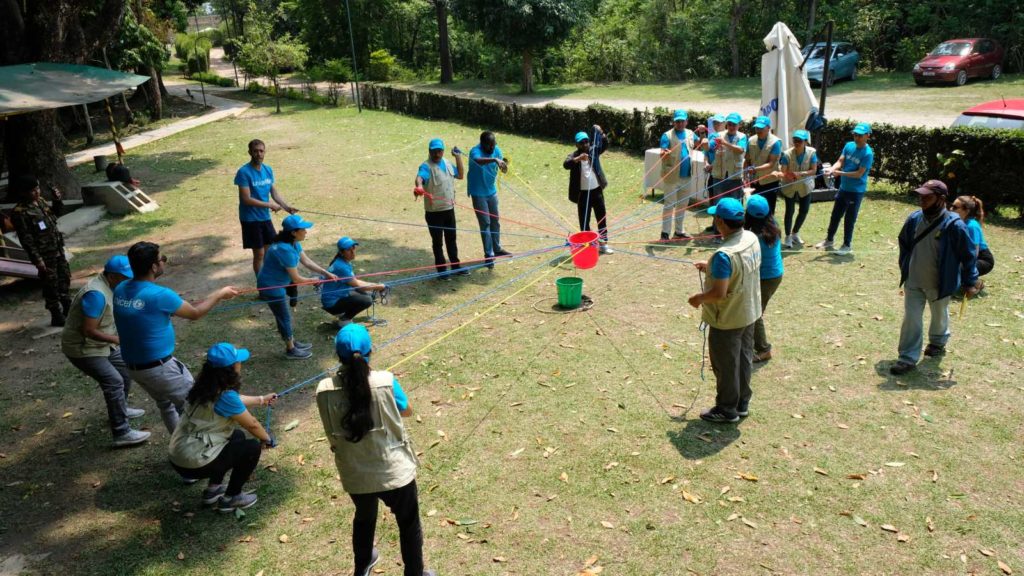
On 2nd day, the team building activities was organized with the objectives of fostering team cohesion, communication and collaboration among the participants. The participants engaged in team-building activities that emphasized communication, problem-solving, and team coordination. Activities such as “Electric Fence,” “Crossing the River,” “Team Parachute,” “Toxic Water,” “Back Pass Water Relay”, and “Robot Tag” were organized to promote teamwork and collaboration. After completing the team building activity at each station, a team debriefing session was led by the facilitators. This was done to reflect on the experiences, discuss the strengths and areas for improvement and draw lessons that could be applied to the participants’ work environment.
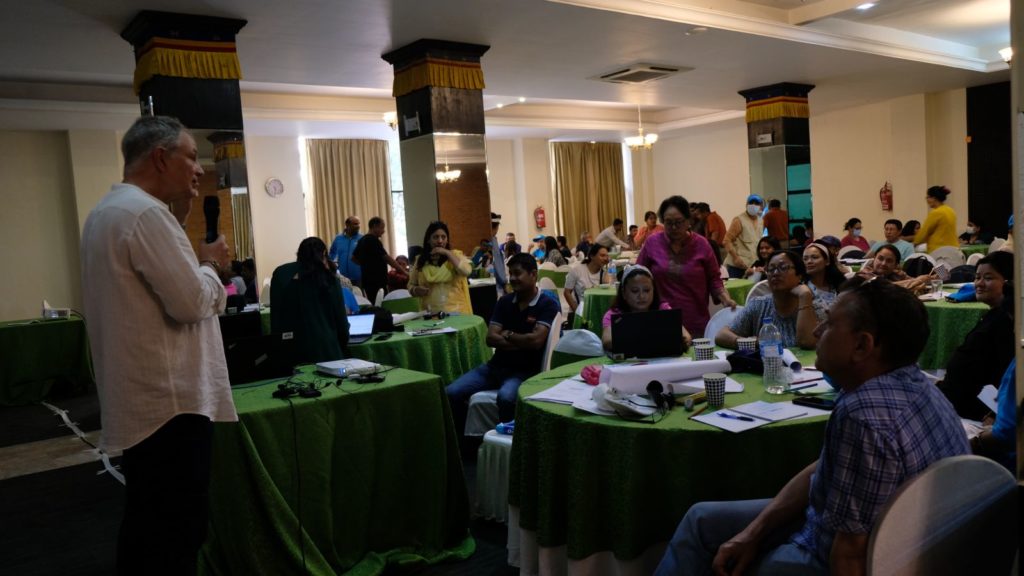
The final day of the program was focused on translating knowledge into action and committing to the change. Mr. Anil Chitrakar, led a group work session by acknowledging the profound impact on the way we work. He emphasized that returning to the office should not be viewed as a mere return to the past but rather an opportunity to embrace positive change and reimagine the workplace for the future. Also the participants work collaboratively on drafting a set of “rules of engagement” aimed at implementing the valuable lessons learned during the program. This will serve as guidelines for their future actions and interactions. After this, the ‘Long Serving Award’ was awarded to their several Staffs from the UNICEF Representative to acknowledge their work for the UNICEF Nepal.
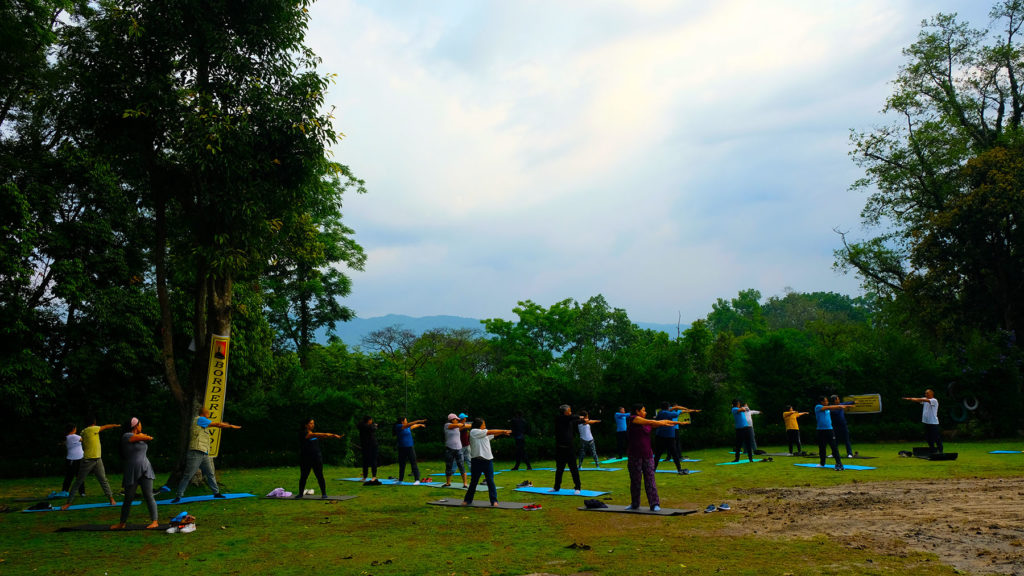
Overall, the team building programs were successful in achieving their intended outcomes. The participants demonstrated improved communication, collaboration, problem-solving skills, and trust. These outcomes are expected to have a positive impact on the participants’ performance and teamwork in their professional settings.


